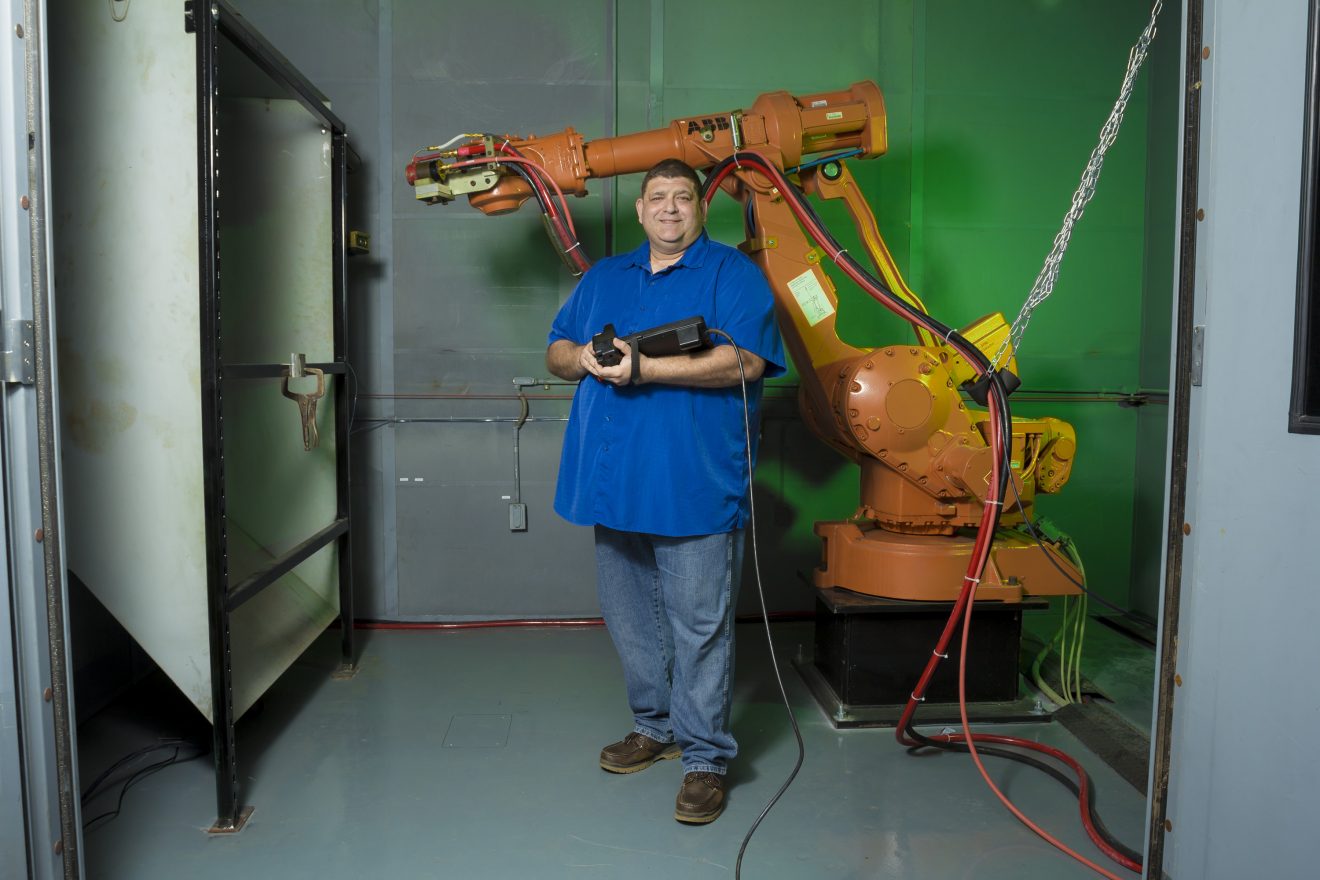Florida Tech Team Turns Up the Heat
Unique Labs Study Wear on Mechanical Parts at High Temperatures
MELBOURNE, FLA. — If a key component of a turbine engine fails, the results can range from inconvenient to disastrous. Time, money, and at worst—lives—may be lost. A team of researchers at Florida Institute of Technology is investigating how critical engine parts fail at high temperatures, and what kinds of coatings make those parts safer and more efficient.
Part of the National Center for Hydrogen Research at Florida Tech, the Thermal Spray Laboratory and the High Heat Flux Test Laboratory create a specialized environment to apply and then test various coatings in extreme heat.
“There aren’t many sites in the country that provide these services in one location,” said Mary Helen McCay, director of the National Center for Hydrogen Research.
Created in part with equipment donated by Siemens, the lab continues to enhance its capabilities. New software was recently added that controls and monitors every aspect of the testing process.
The first stage of testing occurs in the Thermal Spray Laboratory. In a self-contained booth, an industrial-sized, bright orange plasma spray gun melts a ceramic powder onto a test material at high speed. Nitrogen and argon gases are joined with hydrogen and helium, which increase the heat and velocity of the plasma.
After the test material is coated, it moves down the hall to the High Heat Flux Test Laboratory. Using a high-powered laser, the test material is heated to extreme temperatures from above and cooled from below with circulating air. A network of thermal sensors, cameras and computers collects data as the material is pushed to temperatures above 3,000 degrees Fahrenheit.
McCay, who holds a Ph.D. in Metallurgical Engineering and was a decorated NASA engineer early in her career, said this type of testing is ideal for turbine blades that might be used in industrial equipment, or even on airplanes. But there are many other applications as well, from automobiles to prosthetics to shipbuilding.
“We really want the local community to be aware that we have these services available,” McCay said. “We welcome the opportunity to talk with local companies, large or small, about ways in which this unique lab can do testing that would assist them in their business.”
For more information on the services available, visit research.fit.edu/nhc/.
###





